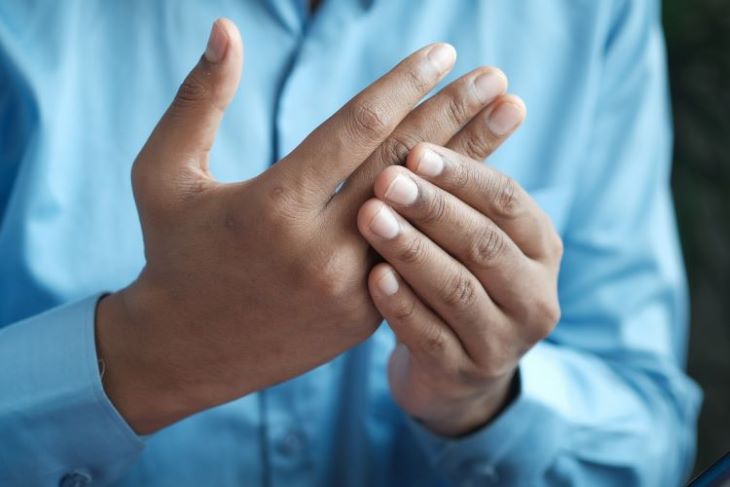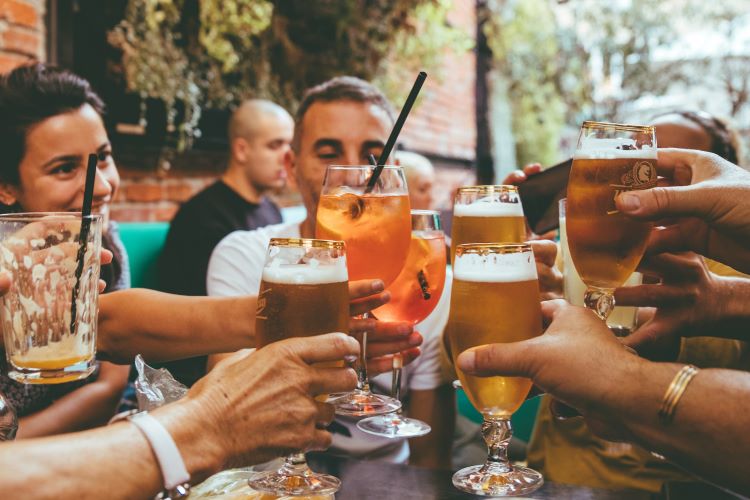If you have been using drugs or alcohol for a long time, it’s likely you have had an internal conversation with yourself about the severity of your use. It might have popped into your head but you’ve slapped the idea away, or perhaps you’ve constantly felt the daily battle of accepting the reality of the situation.
It can be really hard to understand how addiction has crept in. For millions of people throughout the world, addiction is hard to admit. Denial is common.
Also, when people use substances around others in a social way, habits can become normalised. This can make it even trickier to see the negative effects unfolding. Unfortunately, it might also delay accessing treatment.
There are many types of unhealthy drug and alcohol use. A person with an addiction doesn’t fit one description. Many people will drink a bottle of wine every evening after a day at work and seeing to the kids and house chores.
Due to alcohol being legal, this type of addiction can be harder to spot.
What’s important to keep in mind is that whether a substance is legal or not, all drugs and alcohol have seriously toxic effects on the body. It’s only a matter of time before the inevitable destructive impact of substances begins to take place.
If you’re worried about how substances are affecting your health, call the OK Rehab team on 0800 326 5559. We can advise you about support in the Leamington Spa area.
What’s the difference between types of substance use?

When a person first tries alcohol and drugs, it usually happens within a social environment. Quite often it will be at a party, a pub, a bar, or a festival.
When this happens, there are usually a few people doing it together. People tend to seek a particular feeling.
When considering how addiction develops, it’s important to also remember what makes people use substances in the first place. Normally, people are hoping to feel good, to have more confidence, and to relax.
Others might be looking for the “buzz” or euphoric feelings.
These feelings might make people seek substances out again when they’re with friends. Occasional use in social situations is deemed recreational use.
The blurred line develops when taking drugs and alcohol becomes an increasing part of everyday life.
Note: It’s important to remember that although people seek certain effects that they deem desirable, there are also seriously dangerous effects that can be experienced too. People can die from experimenting with drugs and their associated effects.
The signs of addiction

When a person starts to use alcohol and drugs more and more, their life begins to change. This is because the substances affect both how the person thinks and how their body functions.
Addiction tends to take hold in the following ways:
- Thinking about the substance regularly.
- Worrying about when you will be able to next get some of the substance.
- Using more and more often.
- Needing more of the substance, or combining with other substances to feel more of an effect.
- Using drink and drugs on your own.
- Prioritising taking the substance over other activities.
- Borrowing money to buy drink or drugs.
- People close to you becoming worried about you.
- Losing weight.
- Sleep disruption.
- Mental health symptoms developing linked to mood and motivation.
The signs of withdrawal

A person who has become addicted will feel rotten when the substance begins to leave their body. They will crave more of the substance in order to try and feel “normal” again.
Substances can create both psychological and physical addictions. Each comes with various symptoms. Withdrawal takes various amounts of time to begin depending on which drug or whether alcohol is used.
The most common signs that a person is experiencing withdrawal are:
- Feeling generally unwell.
- Shaking and sweating.
- Feeling dizzy.
- Loss of appetite or craving certain foods.
- Aches and pains in the muscles and joints.
- Sickness and diarrhoea.
- Hallucinations and psychosis.
- Seizures.
What happens when a person drinks or takes drugs for a long period of time?

Ingesting toxic substances is going to have an effect on health. It’s a fact that many people will ignore for a long time, especially when the physical damage sometimes takes longer to spot.
This is because the impact is occurring inside the body. The vital organs are taking the strain of drugs and alcohol.
Regular drug and alcohol use will cause a build-up of seriously dangerous chemicals and reactions in the body. Eventually, this will increase the risk of serious physical and mental health problems.
Drugs and alcohol cause the following:
- Chronic illnesses are linked to the lungs, stomach, liver, pancreas, and bladder.
- Damage to brain cells and brain functioning impairing cognitive functioning.
- Cancer of various parts of the body.
- Heart problems.
- Problems with the skin.
- Blood diseases.
Of course, there are also the social and financial parts of a person’s life to consider too. Often, relationships are destroyed and housing and financial difficulties can arise.
How do you know when it’s time to stop using drugs and alcohol?

It’s common for people to put off finding out about treatment services in the Leamington Spa area. Individuals might assume that because they can’t see any external damage that there is nothing to worry about.
Also, when a person is caught in a cycle and lifestyle, it can be hard to see themselves objectively.
The longer rehab and recovery are delayed, the increased risk of serious illnesses and the more healing that needs to take place. Even if an individual thinks that they don’t need help yet, or wants to wait until a particular time, it’s advisable to access services for light input.
This can be invaluable in giving harm reduction tips and in providing support in other areas that might cause a person to use drugs and alcohol more.
On the whole, however, stopping using drugs and alcohol is best done as soon as possible in order to keep mental and physical health damage to a minimum.
Can I go to rehab in the Leamington Spa area?
Yes. There are treatment options in the Leamington Spa area as well as in the wider region.
You can find out all about your options by calling OK Rehab now on 0800 326 5559.





